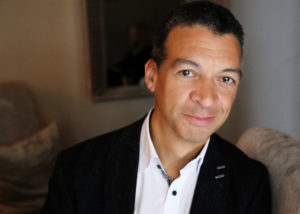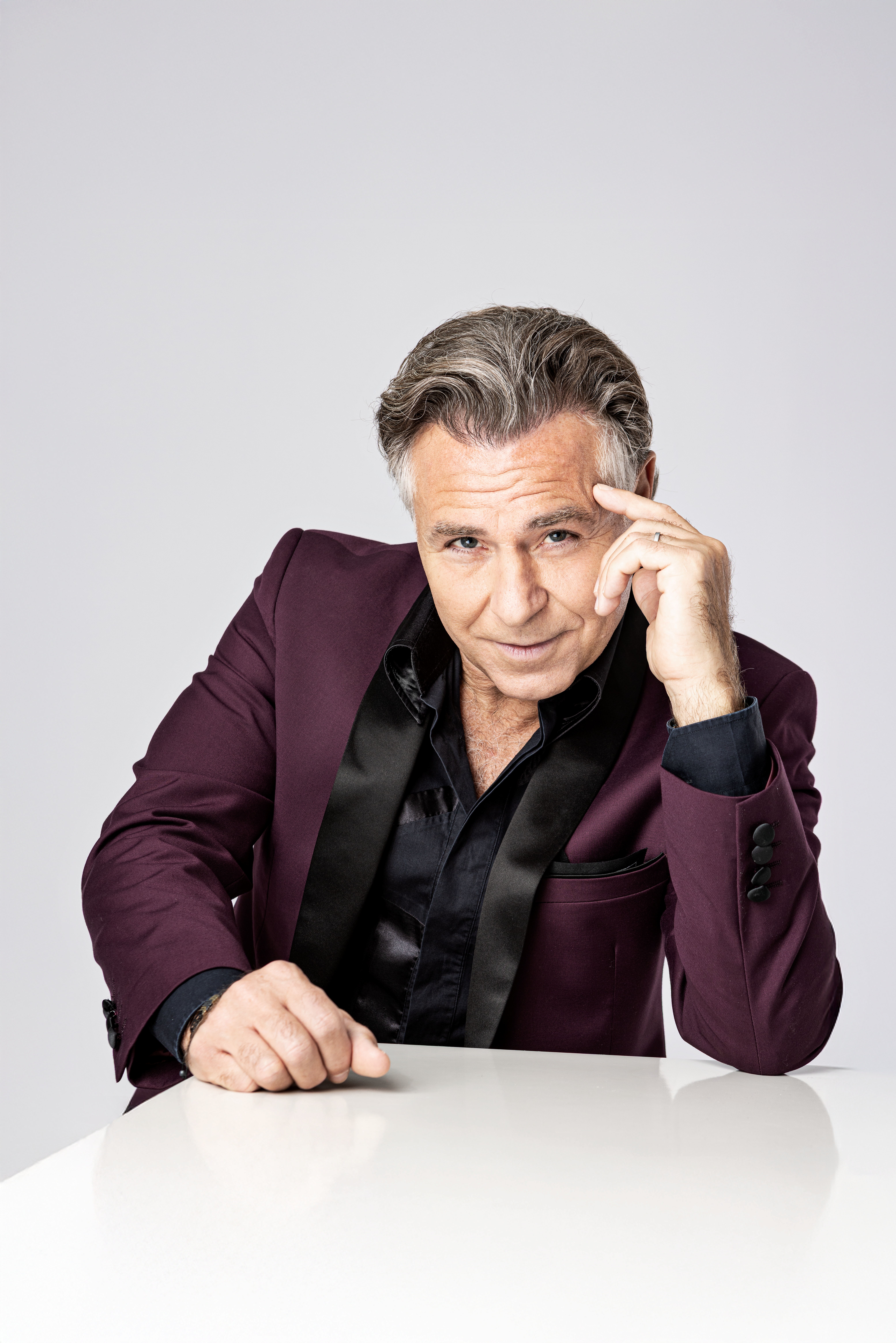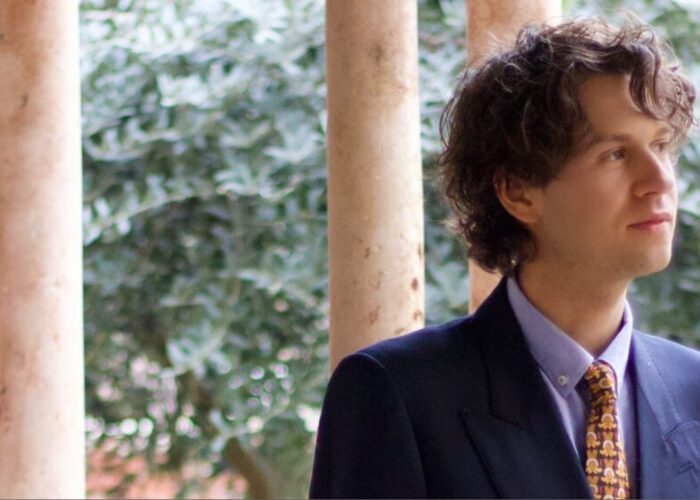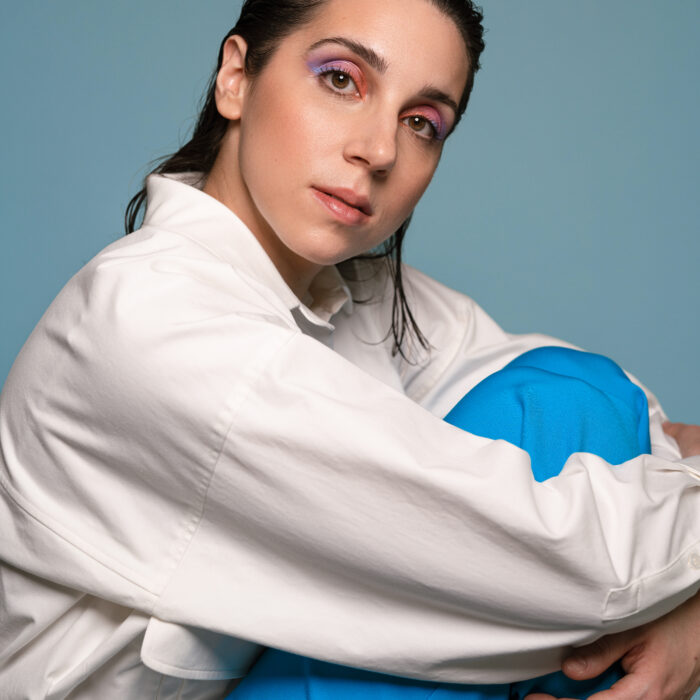
Opera in the Time of COVID: Roderick Williams, Famed Baritone & Officer of the Order of the British Empire
By David Salazar(Credit: Frances Marshall)
“Opera in the Times of COVID” is an interview series in collaboration with photographer Frances Marshall of Marshall Light Studio. We talk to notable figures from around the opera world to get their perspective on how they feel these challenging times may change opera’s present and future.
Baritone Roderick Williams is one of the most respected artists in Britain. A winner of the 2016 Royal Philharmonic Society’s Singer of the Year Award, he has performed with such companies as the Royal Opera House, English National Opera, Opera North, Florida grand Opera, Netherlands Opera, BBC Symphony Orchestra, Scottish Opera, and the Teatro alla Scala, among others. He’s interpreted dozens of roles and appeared in prominent world premieres of such operas as “From Morning to Midnight” and “Alice in Wonderland,” among others. In 2017, he was appointed Officer of the Order of the British Empire for his services to music.
OperaWire recently spoke to Williams about his time in lockdown during the COVID-19 crisis and how he’s used his time to enjoy his family and do all those things he always promised he would.
OperaWire: What have you done during this time to keep yourself positive and productive?
Roderick Williams: Apart from all the gardening, housework and exercise that I’ve been doing, which has been keeping me hugely positive, I have been editing some of my own music. I had been composing a great deal in the first two months of this year so rather than spend March and April writing more, I thought I should rest my compositional muscles and instead take up some of those jobs I had always promised myself I would do “one day.”
This has include typesetting some of my early compositions that were written out by hand. Some of them I have never heard live before; I’m hoping that, once all this is over, I might be able to find people to play them for me!
OW: What do you feel will be the greatest impacts of COVID-19 on the opera world moving forward? What are some new developments that you feel are here to stay?
RW: It is quite difficult to predict what effects this lockdown experience will have on society and I am fascinated to hear what experts in this field have to say. I’m so interested in this extraordinary, global social experiment; people will be studying it for years to come. I’ve read some newspaper articles that predict that humanity will actually want to return to normal as quickly as possible, leaving behind all those things we are currently imagining will have changed society for the better. Anyway, that’s for other people to say.
I think, in the short term, it will be some time before people feel comfortable sharing large auditorium spaces together in close proximity. Everyone will remember how performances in the past were always punctuated by coughs and sneezes, especially in the softest, most fragile moments of music. Only just before lockdown, when I was performing in “Madama Butterfly” at English National Opera at the London Coliseum, someone in the audience let off the loudest sneeze I’ve ever heard, right at the top of the third act, in the orchestral interlude. It broke the atmosphere of course, made some audience giggle, but we were also all aware of the germs spreading in that confined space. That’s going to take a while for audiences to get over, I would think.
On the other hand, my final concert before lockdown was a performance of Schubert’s “Winterreise” in English. I began the concert by sharing a few thoughts with the audience, including talking in passing about health, coughing and social distancing. It was the quietest, most concentrated audience I can remember. There wasn’t a single cough or splutter. So perhaps audiences of the future will finally have learned to mute their coughing in the crook of their elbows. That might be a positive.
Travel is also one area where things might be different, if only to begin with, although I am guessing this might be less of a thing in the music world than in the business world. Businesses are waking up to apps like Zoom, WhatsApp and Skype that allow them to hold productive meetings across the world without all that expense of international travel and accommodation.
It’s possible that, in the short term, promoters might feel they need to, or even wish to, use more national or local artists. This could be a genuine discovery of this lockdown, the desire to keep things closer. However, music is a global language and experience and I feel part of its strength is the desire to hear people from all over the world interpreting music. It wouldn’t be long before audiences and opera house would begin to feel quite insular if they only ever used local talent.
OW: One of the major developments of this time are the emergence of streaming and connecting with fans and followers more directly via social media. How has this impacted your time in quarantine?
RW: I haven’t been using the internet to connect with audience members especially during this time, at least, no more than usual. Sure, I have a little more time on my hands to share my every thought and whim on Twitter, for example, but I reckon people can become bored with that pretty quickly, so I do try to limit my output.
I haven’t been coaching singers on the internet. That’s a choice I have made partly because the work I enjoy doing on repertoire is so bound up with how a singer responds to an accompaniment. I can’t really conceive how this would work with a singer a cappella. I could imagine one-to-one sessions working well for singing teachers and their students but I am not a singing teacher; I don’t meddle with technique.
I have very much enjoyed being a part of initiatives like Thomas Guthrie’s Help Musicians Uk appeal and Dan Norman’s Bach John Passion in Isolation for the same charity. These have involved a huge number of hours of work from various technical wizards behind the scenes. My involvement was brief by comparison. So they have my hugest respect and thanks.
OW: What do you enjoy most about this development in a focus on virtual music-making?
RW: I have enjoyed the ability to meet up online with an app like Zoom that allows many of us to take part in a shared meeting. I’ve been involved in two virtual meetings recently, almost concerts but more like forums. I really enjoyed them. Hilariously, it was impossible to sing together using this app; we tried to sing someone Happy Birthday and it fell apart – it sounded like some sort of Steve Reich phasing!
OW: What is something that makes you apprehensive about the sudden preponderance of this virtual opera environment?
RW: I’m not apprehensive about streaming entering into the (classical) music market because I don’t think it can ever compete with a live performance. I would support any initiative to share music to as wide an audience as possible by whatever means are available, in the hope that it might bring more people eventually to live performances.
OW: What are you most excited about doing once the quarantine officially comes to an end and we are allowed to resume a “normal” life?
RW: Hearing and taking part in live music, hopefully in a large hall and on a large platform. That and going to the pub, of course.
I have been cycling with my wife every day in this wonderful weather. What I dearly miss is being able to stop off at a wonderful country pub, of which there are an endless number near us, for a lovely pint and maybe something to eat. I really miss that!
But of course I miss making music with other people. If I were to be arrested in the next few weeks for breaking the lockdown, it wouldn’t be for a party or a trip to the beach. It would be a shameless visit to any of my pianist friends to sing some song!
OW: Who have been the people you have relied on most to help you through these challenging times?
RW: Well obviously my wife and extended family. It has been wonderful to be in close, daily contact with them. Why haven’t I done this before? Ring your mother now!
OW: Most people in quarantine are actively engaging with the arts via either music, TV, film, reading, literature. Etc. What have you been watching or reading during this time?
TW: There seems to be so little time during the day! If the weather weren’t so gorgeous I wouldn’t have been in the garden so much. But we have been watching TV together as a family of an evening (like I used to do with my parents when there were only a few terrestrial channels available) and I am slowly working my way through a novel my son recommended to me a while back. It has been so long since I’ve read a novel because those moments are exactly when I would normally be memorizing song or opera texts. My extended family have been sharing little video clips and whatnot which have been keeping us all going.
OW: Speaking more globally about the pandemic, what can the world learn about this experience? What do hope to see from our leaders (political or even industry) in order to build a better future that enables us to better manage any similar type of situation?
RW: That is beyond my pay grade. I am a musician, not a politician, anthropologist or social commentator. I am fascinated to see, as I’ve said, what such people will make of this time. I can observe like anyone that the drop in pollution levels globally is clearly demonstrable. I suspect Extinction Rebellion must be marveling at the change, even if they find themselves suddenly with an awful lot of spare glue.
Categories
Interviews

